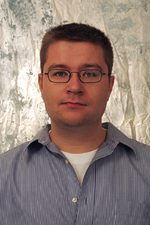
PhD Thesis Defense
April

Carnegie Mellon University
9:30 am to 10:30 am
NSH 3305
Abstract:
Robots exploring the subsurface ocean of Europa, for example, may not have reliable communications with scientists on Earth. Robots exploring with unreliable communications must conduct scientific exploration autonomously.
Approaches to deliberative and opportunistic science autonomy that work in the laboratory may not work in the field. This thesis presents three algorithms designed to improve the performance of robots conducting autonomous science investigations.
The first algorithm, foraging, improves opportunistic responses by deciding between either sampling immediately available objects or searching for better options. Our approach has increased performance in selecting objects to sample when sampling costs are high, without neglecting opportunities when sampling costs are low.
The second algorithm addresses how to effectively conduct prospecting without relying on either arbitrary thresholds or responding to anomalies. We present an algorithm that directly poses the question of whether a change has or has not occurred. We show our change detection algorithm improves sampling performance.
The third algorithm represents a new approach to information gathering based on falsification. Scientists come to missions with hypotheses formulated, our algorithm uses those hypotheses to choose sampling actions that help determine which hypothesis is most credible. We show that our approach biases the belief in hypotheses towards the most credible one.
We show that by accounting for operational conditions, science autonomy algorithms will be improved. Each of these algorithms improve components of autonomous science, and thereby the process as a whole.
Thesis Committee Members:
David Wettergreen, Chair
Jeff Schneider
Nathan Michael
David R. Thompson, Jet Propulsion Laboratory